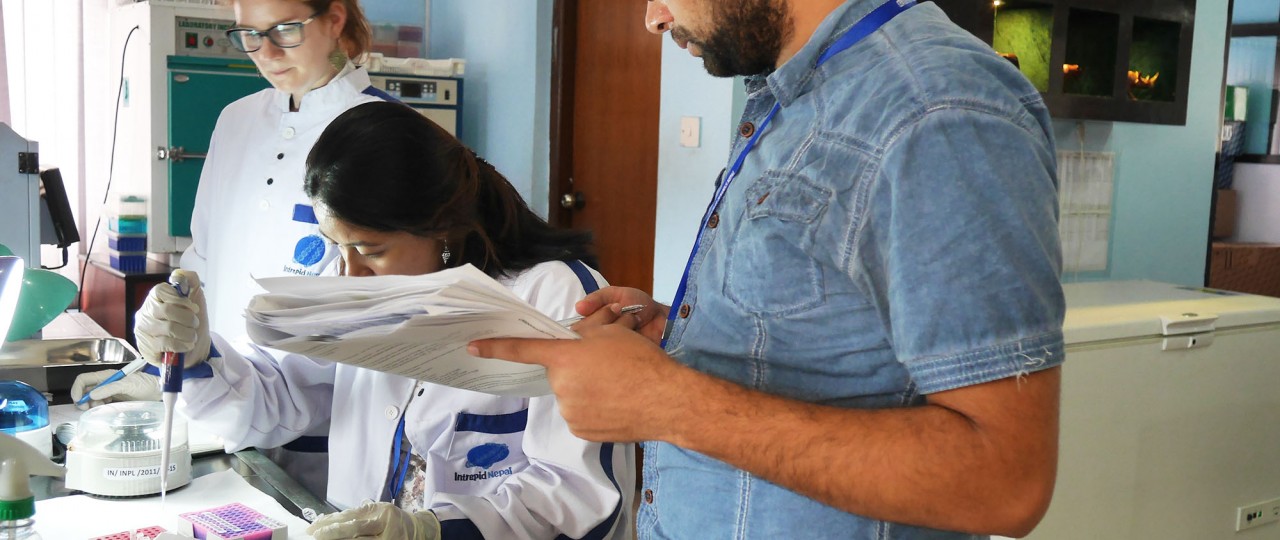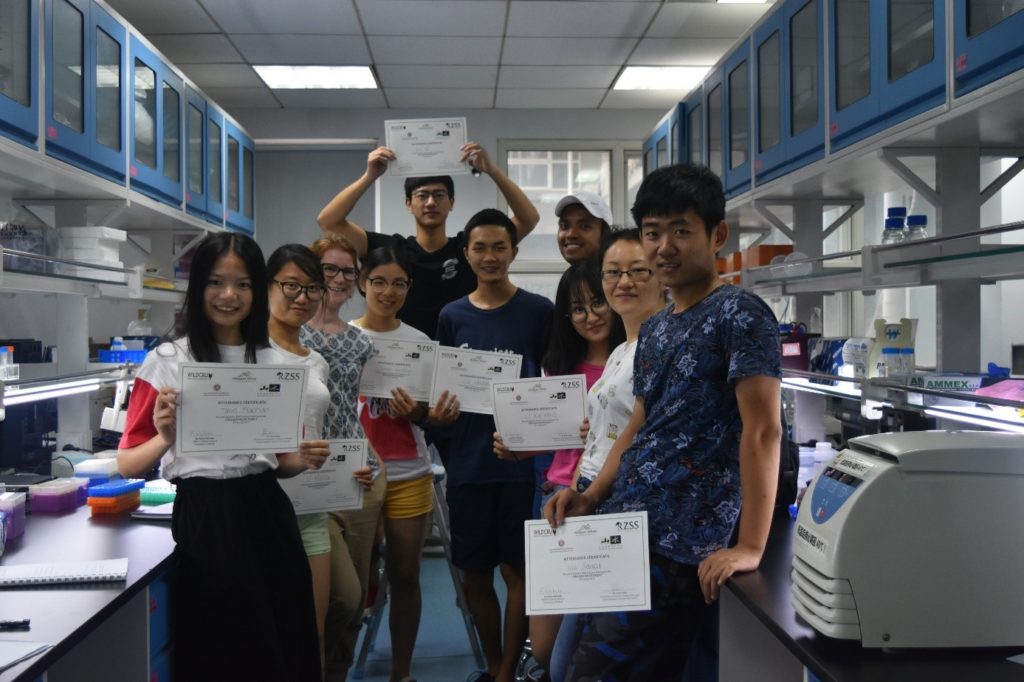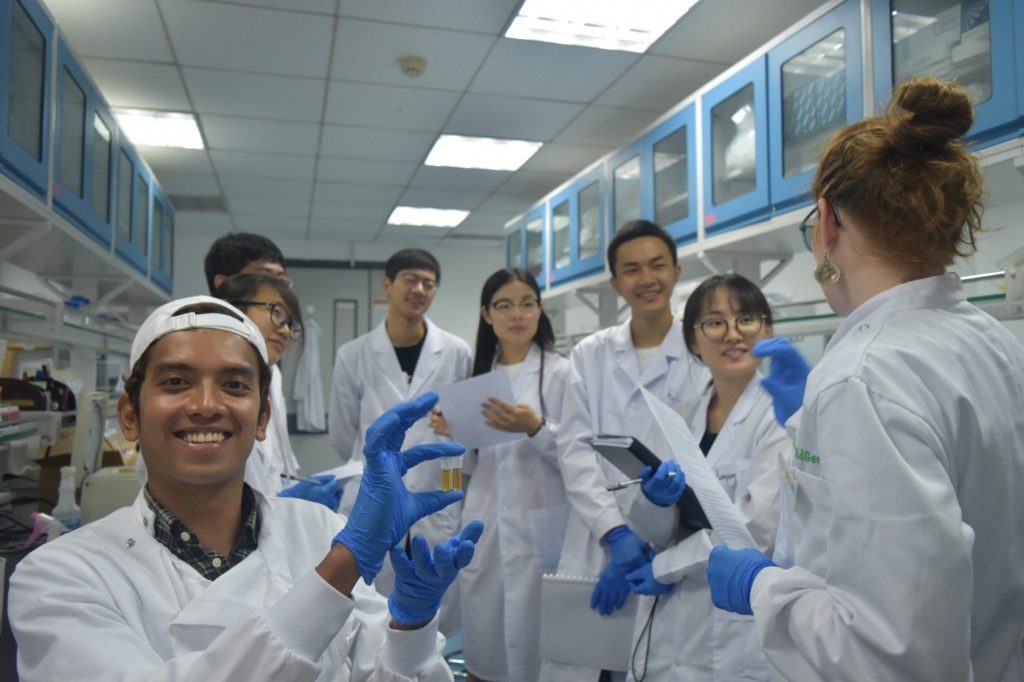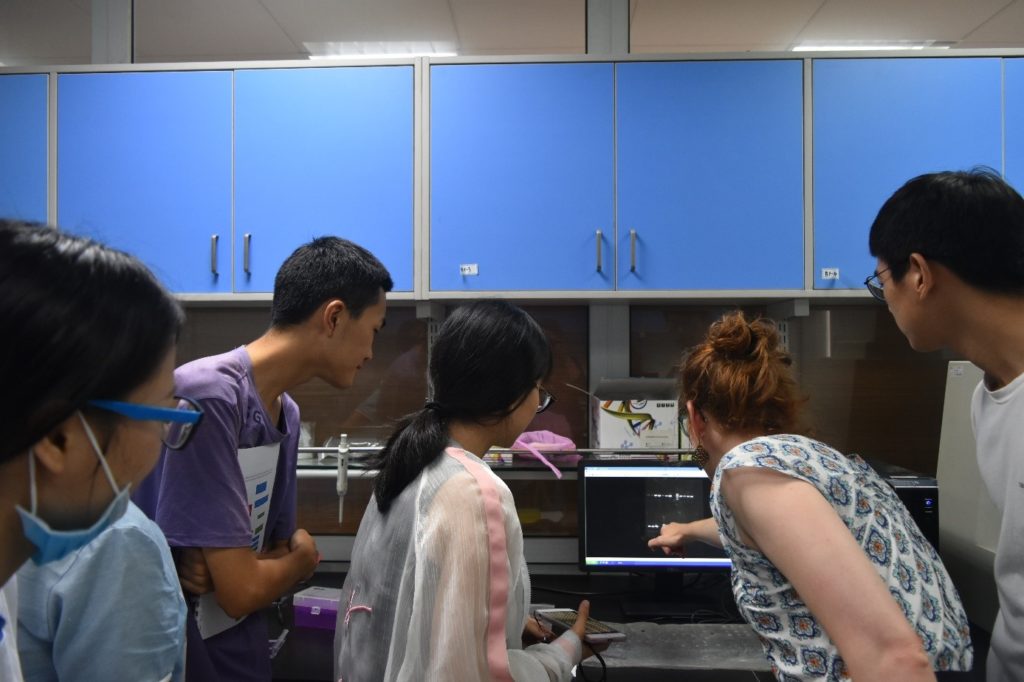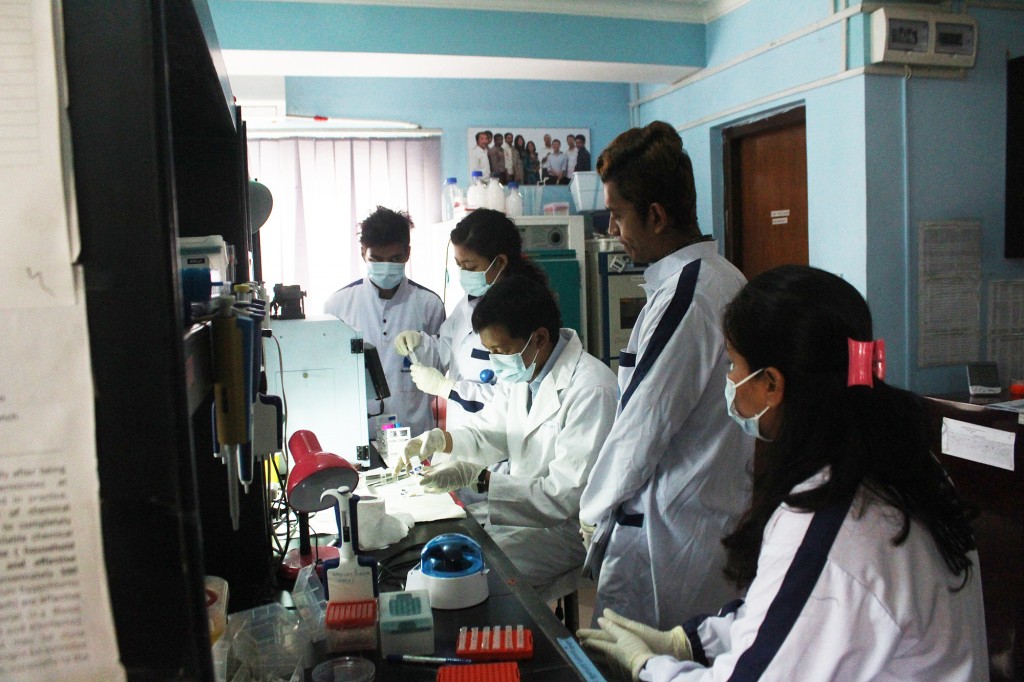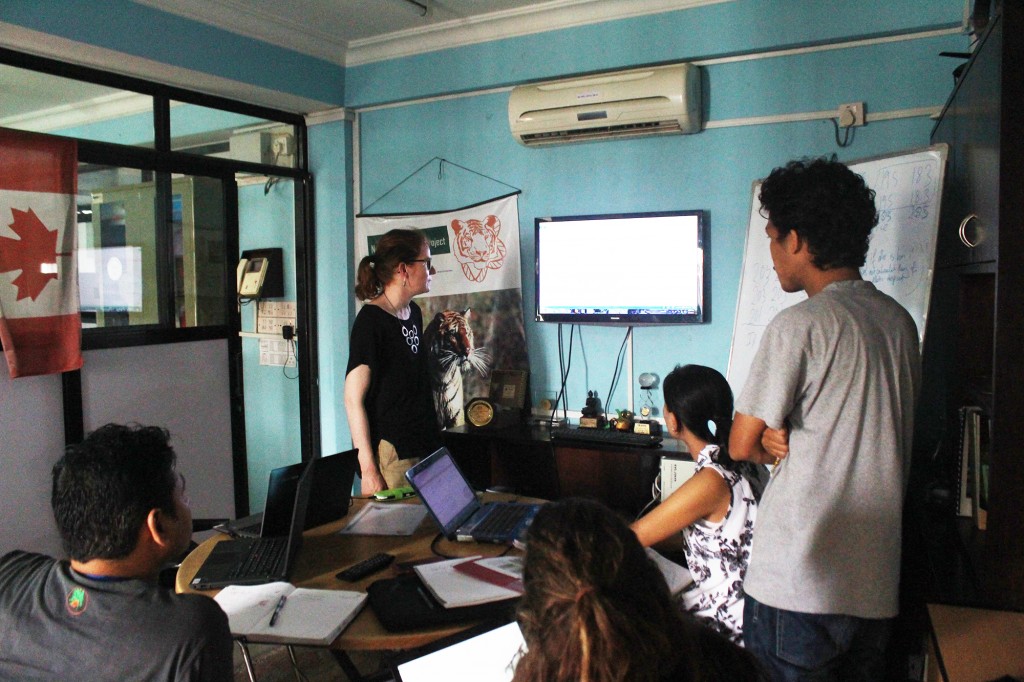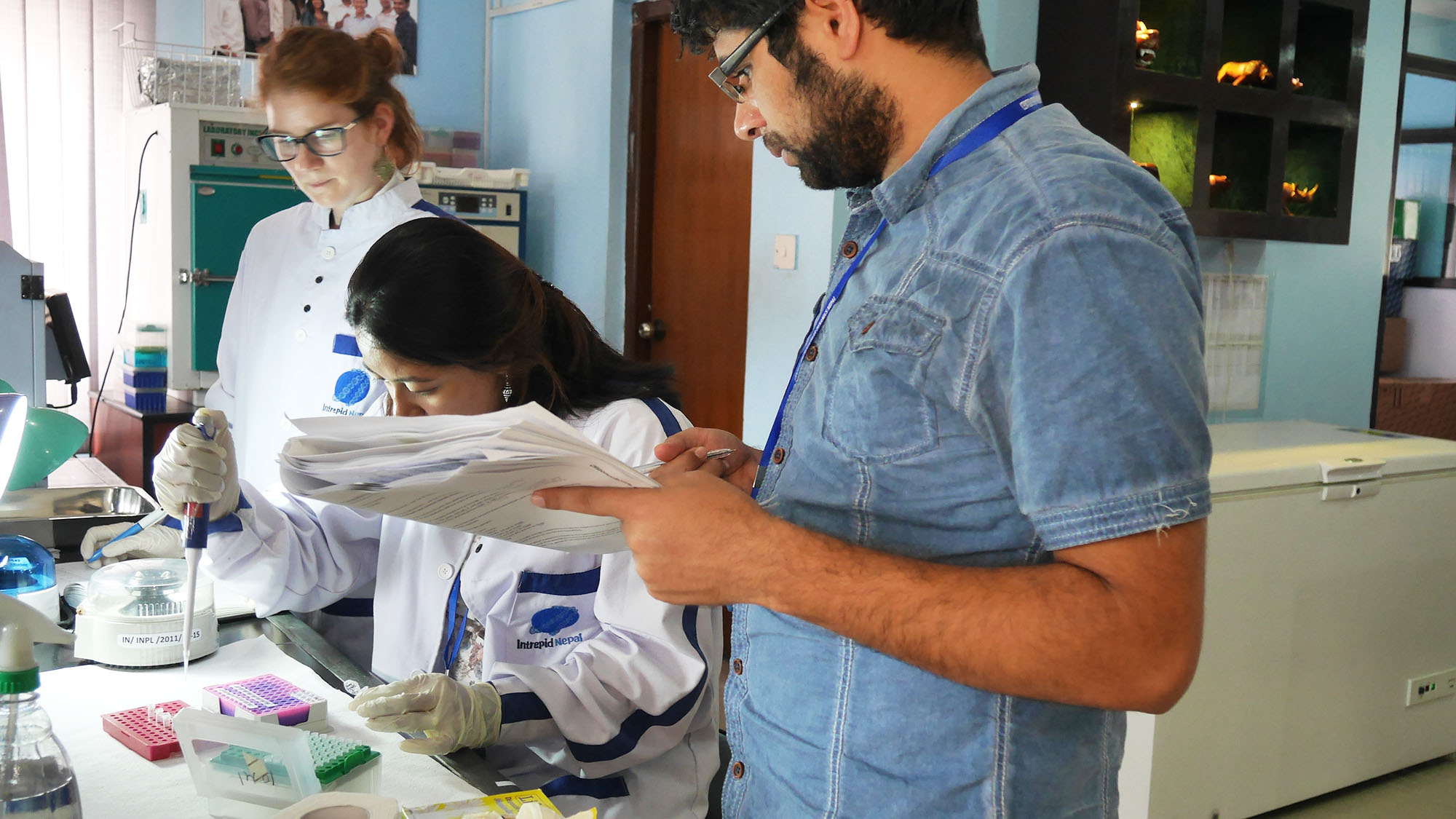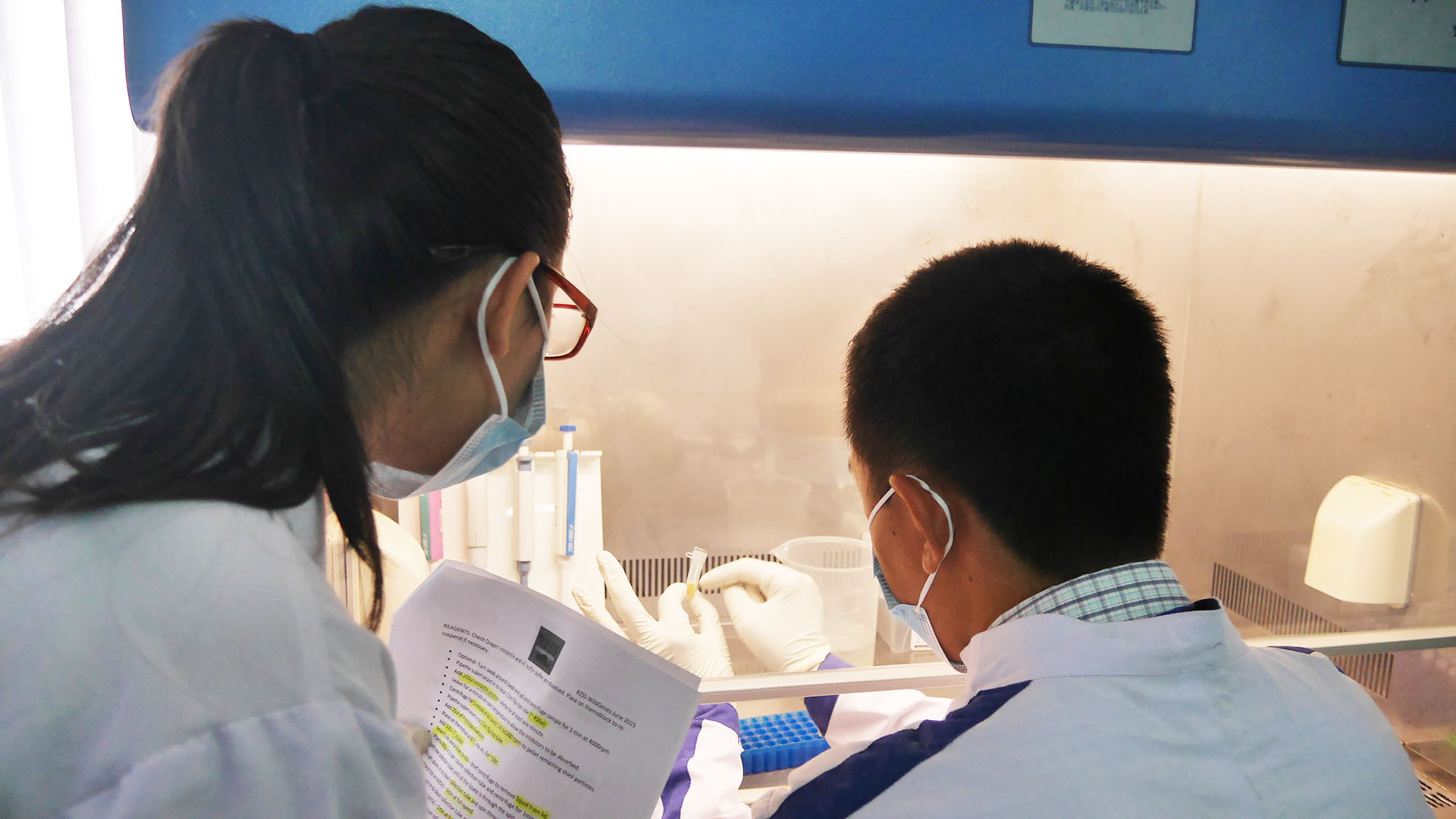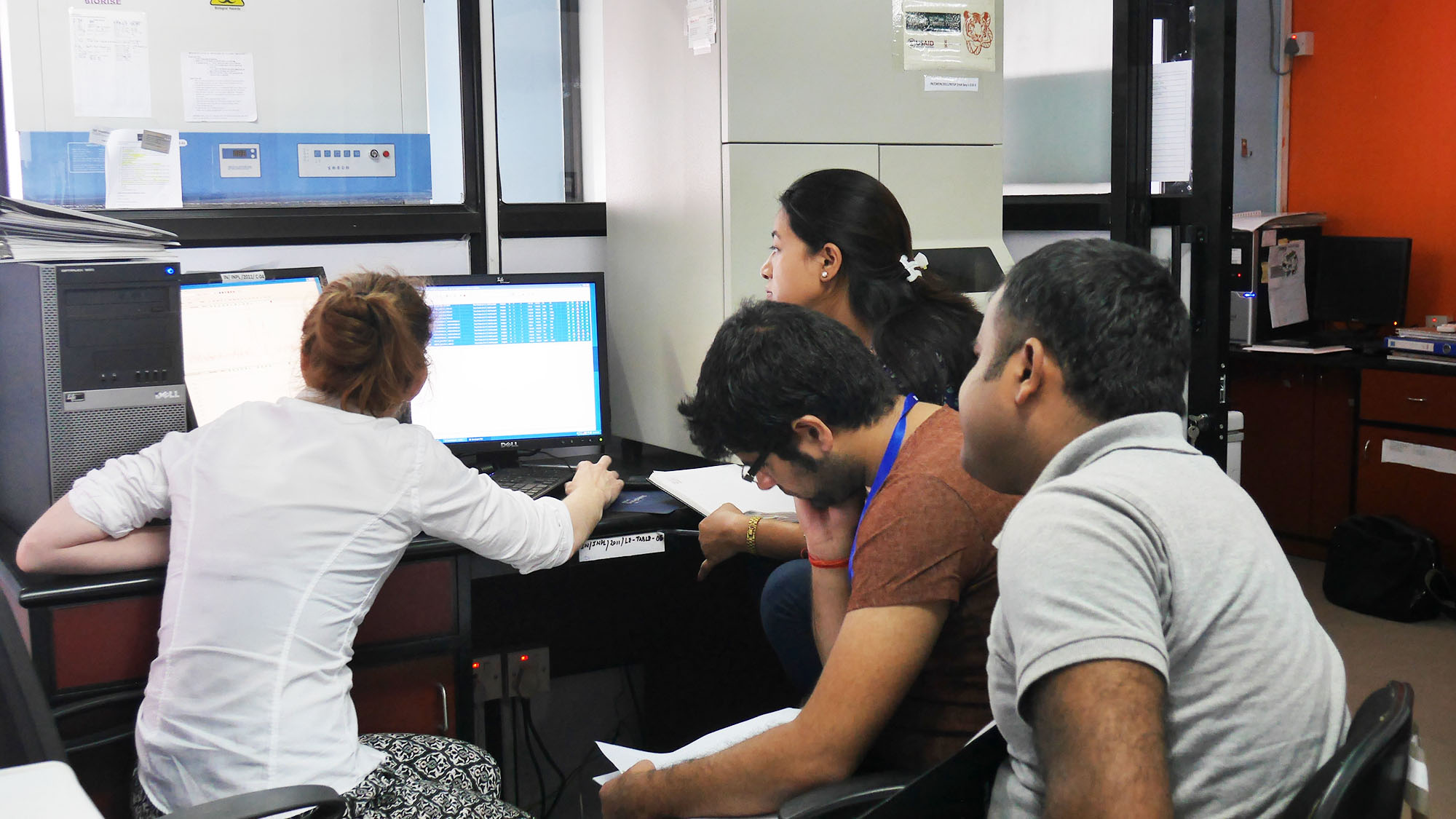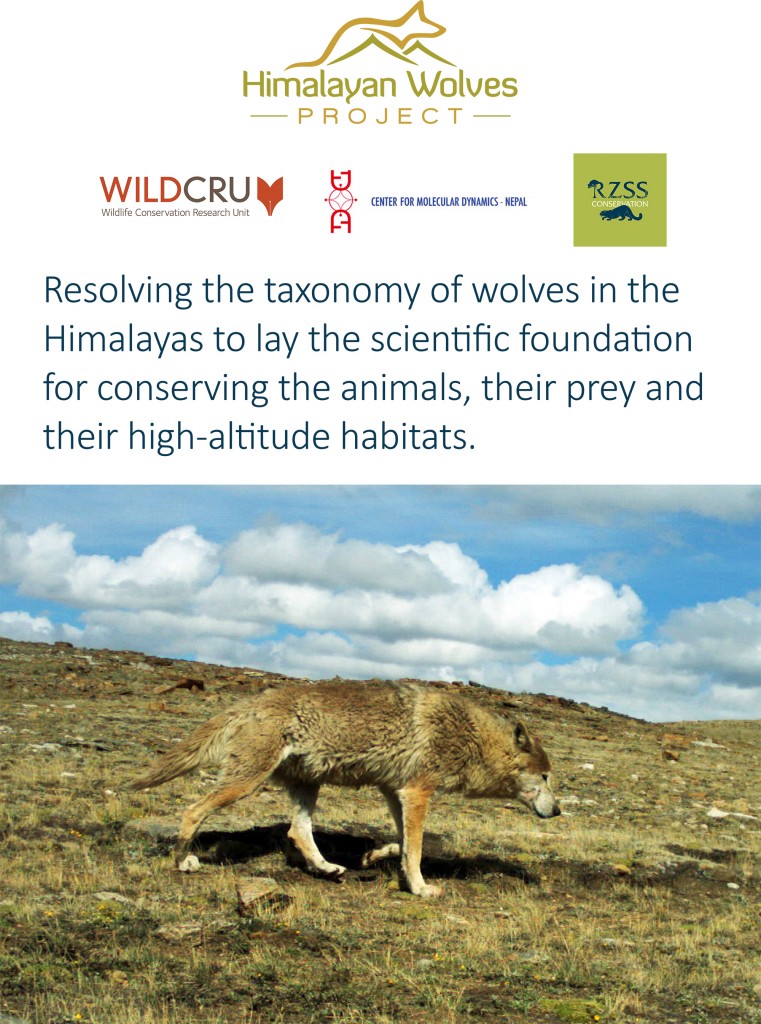GENETICS – A REASON TO CONNECT ACROSS THE GLOBE
Wolf research genetics training at Peking University, China 2017
Our past research indicates that Himalayan wolves are found across the Tibetan Plateau regions of China. This motivated us to join forces with Chinese Conservation researchers at Peking University.
The Himalayan Wolves Project in collaboration with RZSS WildGenes joined forces with Shanshui and the Molecular Ecology Lab at Peking University. Dr. Helen Senn and Muhammad Ghazali from RZSS WildGenes together with Geraldine visited Beijing in July to train seven outstanding students on the laboratory protocols for wolf genetic research. The training covered both mitochondrial and nuclear DNA methods to research the phylogeny and distribution of the Himalayan wolf found in the high altitude habitats of China’s West. China is very modern with well-equipped labs, and with sequencing results back on one day!
This training was the start of a collaborative wolf research that will now continue over the next month and involving students working on different topics. Hopefully this is a fruitful spark for more wolf research and conservation in China in the future!
Training 2016 by RZSS WildGenes, CMDN and the Himalayan Wolves Project
Another genetics training session jointly conducted by the Himalayan Wolves Project, RZSS WildGenes and CMDN has been completed in August 2016. RZSS Conservation genetics program manager Dr. Helen Senn and RZSS Genomics Technician Jal Ghazali came from Edinburgh to Kathmandu to train the team at the Center for Molecular Dynamics Nepal (CMND) on wildlife genetics with a focus on the wolf research. The training included lectures and application of the learned skills in the lab in small groups over four days. One focus this year was to discuss last year’s wolf results, the microsatellite scoring, and how to further improve the analysis for this year’s wolf samples.
Also a new piece of analysis was developed by RZSS WildGenes and delivered to CMDN to strengthen the inferences we can get from the genetics work for the wolf study. Other topics covered in the training included non-invasive field sampling, DNA extraction optimisation, PCR optimisation, microsatellite analysis and optimisation, bioinformatics data analysis, primer design, population genetic theory and an introduction to software such as GenAlex and Geneious, while always considering a whole range of species found in Nepal. A high level of motivation and eagerness to learn characterised the entire training period and fuelled intense discussions.
The joint genetics work for the Himalayan Wolves Project is bringing value to all involved parties and a constant strive to improve the quality of the research is the result of this positive collaboration.
Training 2015 by RZSS WildGenes, CMDN and the Himalayan Wolves Project
To clarify the phylogenetics of wolves roaming the Himalayas extensive and most up to date genetic research methods are needed. Dr. Helen Senn and her team from WildGenes of the Royal Zoological Society of Scottland (RZSS) developed a protocol for the genetic analysis of wolf scats specifically tailored for the Himalayan Wolves Project. To deliver and initiate this protocol she came for a training visit to the Nepalese laboratory Centre for Molecular Dynamics Nepal (CMDN) in Kathmandu this September 2015, which turned out to be a great success. All participants were very motivated and a great team spirit characterized the days. The value generated in the training exceeds the protocol delivery through the extensive share of knowledge and experience on a wider range of species. Dr. Senn was busy answering smart questions throughout the entire training period, from genetics, to elephant dung, to wolf scats, back to the genetic methods. The delivered protocol will be used in the genetics work of the Himalayan Wolves Project, but will contribute to improve the genetics work in Nepal on many other relevant species, such as snow leopards and elephants.
